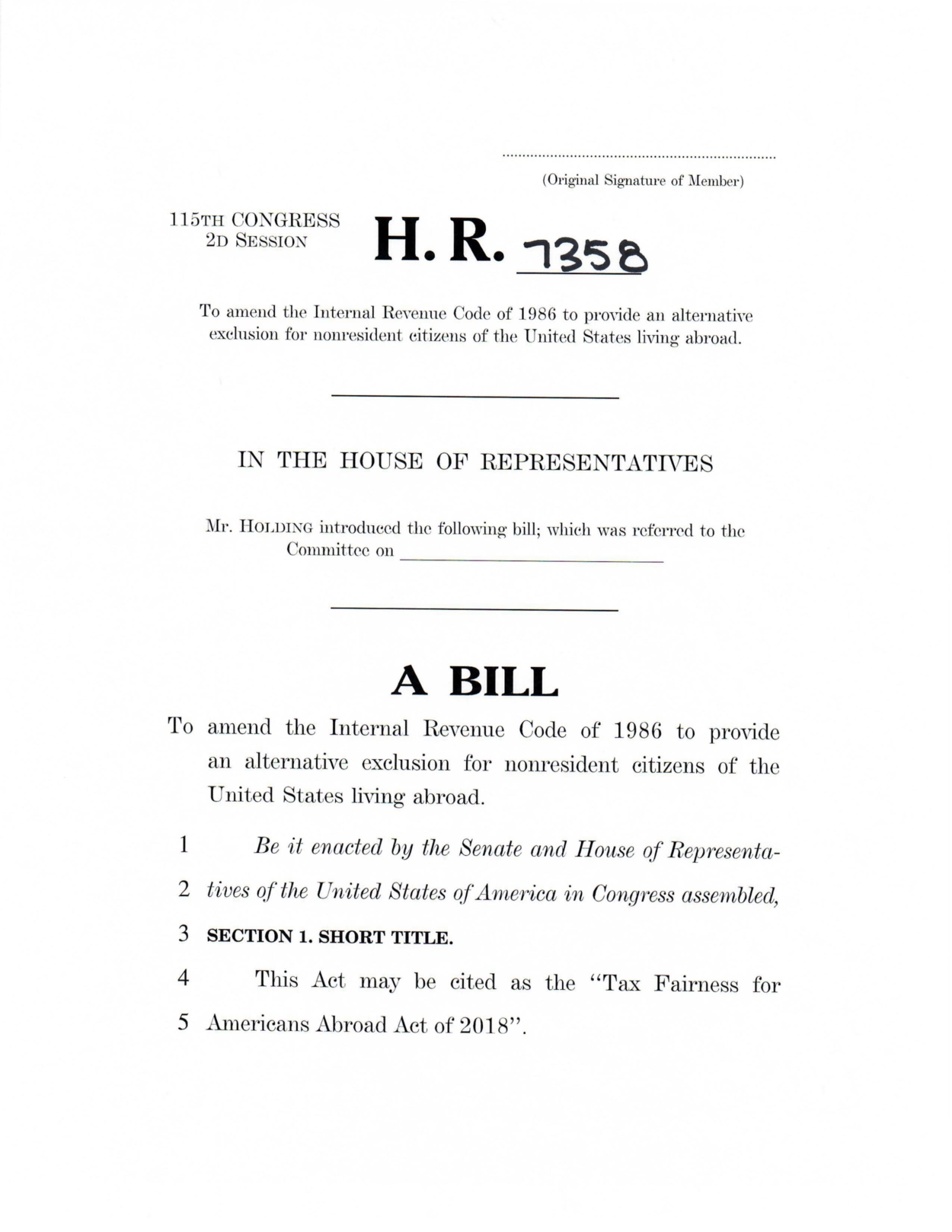
Today, December 20, 2018, Congressman George Holding (NC-R) introduced the Tax Fairness For Americans Abroad Act (TFFAAA) – H.R. 7358.
The TFFAAA will not only end the double taxation of overseas Americans, it will also make Americans more competitive in the international job market and free to pursue opportunities around the world.
The TFFAAA will amend the Internal Revenue Code by offering overseas Americans a status similar to that enjoyed by corporations where foreign-sourced income is taxed in the country where it is earned.
The bill can be summarized as follows:
- Overseas American citizens can elect to become a qualified nonresident citizen under this bill or elect to remain taxed under the existing CBT.
- Under this bill, a nonresident citizen is defined as an individual that:
- Is a citizen of the United States,
- Has a tax home in a foreign country,
- Is in full compliance with U.S. income tax laws for the previous 3 years, and
- Either:
- a) Establishes that he has been a bona fide resident of a foreign country or countries for an uninterrupted period which includes an entire taxable year, or
- b) Is present in a foreign country or countries during at least 330 full days during such taxable year.
- Citizens moving overseas in a ‘split year’ can still make use of the Foreign Earned Income Exemption (‘FEIE’) to cover income earned abroad during the split tax year.
- Once a citizen has elected nonresident citizen status, the US government will no longer tax that citizen’s foreign earned income or foreign unearned income.
- All income earned by a nonresident citizen within the United States will continue to be taxed under existing laws.
- While individuals will not be taxed on gain from the sale of foreign personal property attributable to their time as a qualified nonresident citizen, they will still be taxed on any gain attributable to their time as a resident of the U.S. In other words, if an individual holds a foreign asset prior to their election of qualified nonresident citizen status and then sells said asset while they are a qualified nonresident citizen, the individual will only owe U.S. tax on the portion of gain attributable to the period prior to their change in status.
Republicans Overseas is working with Congressman Holding’s legislative staff and Grover Norquist (President of Americans For Tax Reform) to develop a plan for getting the bill passed in Congress in 2019.
Click here to read the bill in its entirety.
Click here for a one-page description of the bill.


